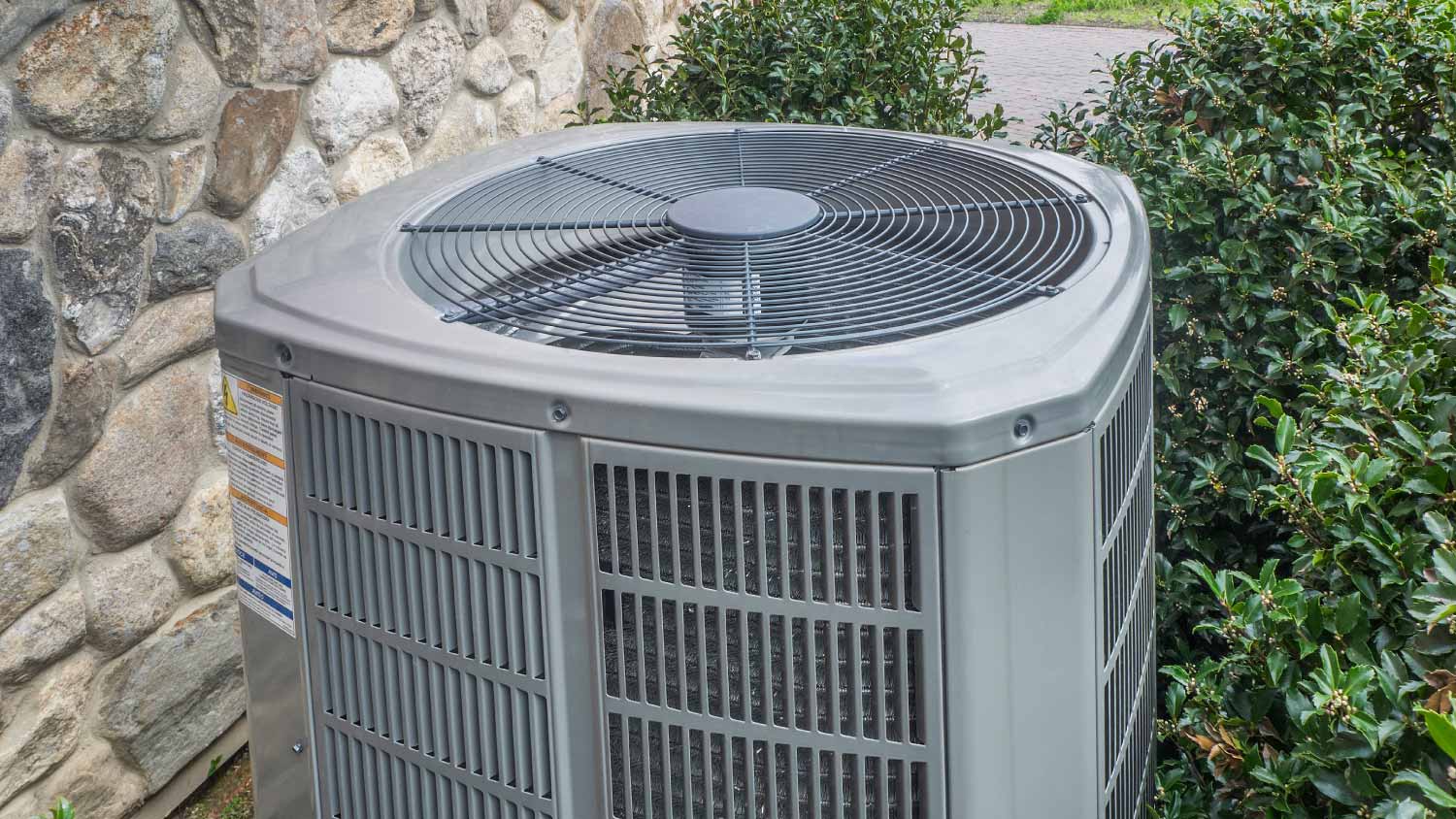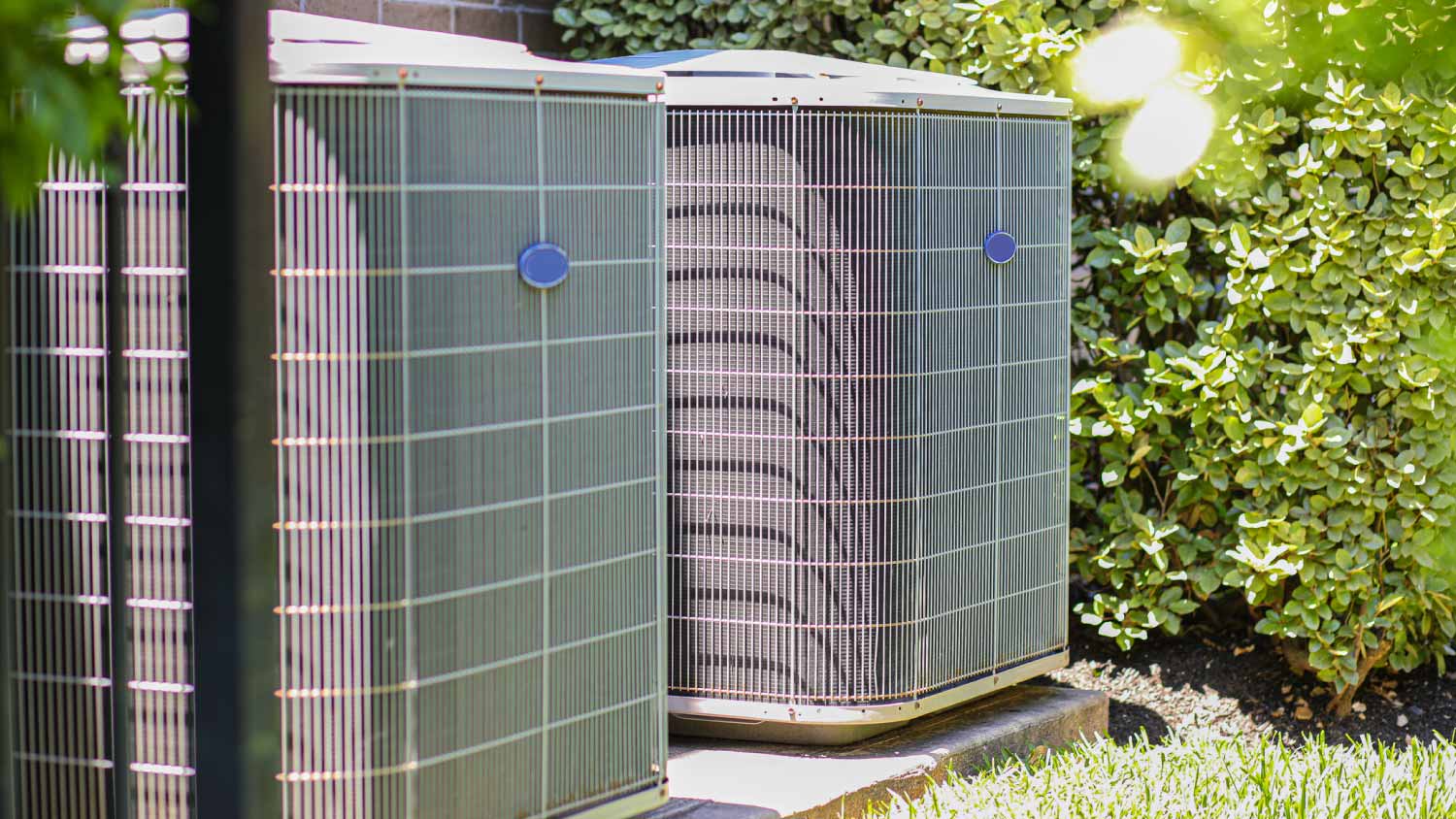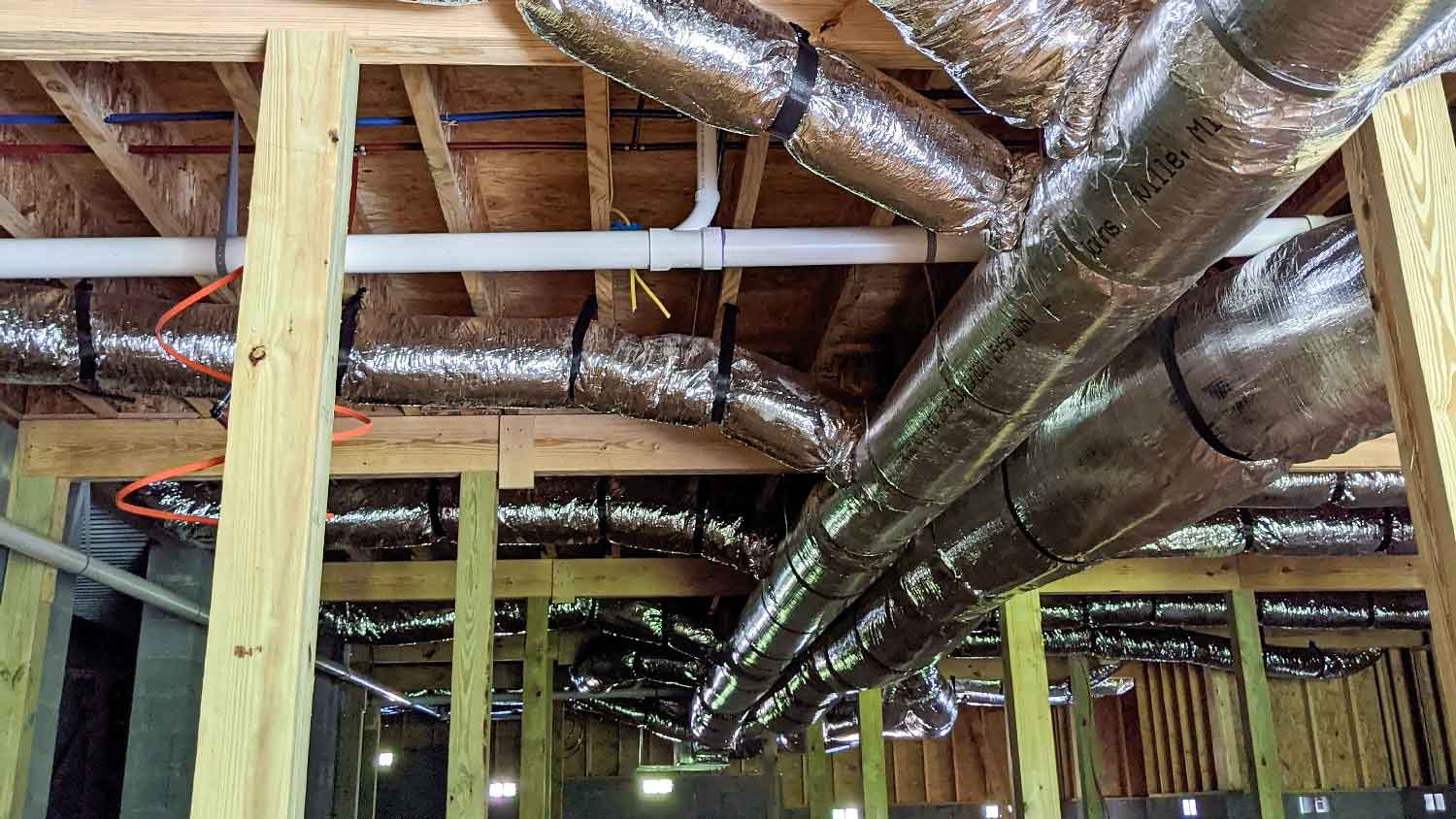
Discover the factors influencing air duct replacement costs in Atlanta, GA. Learn how to save money and make an informed decision for your home's comfort.
Which one will help you keep your cool?


A two-stage HVAC system is quieter and more efficient but costs more up front.
Single-stage HVAC systems are less expensive and may make sense if you live in a smaller home.
A two-stage HVAC unit may be worth the extra cost if your primary concerns are efficiency and indoor air quality.
If you’re looking for a longer-lasting unit with higher-quality parts, a two-stage HVAC unit is likely your best bet.
If you’re in the market to upgrade your cooling system, you’ll likely come across single-stage and two-stage HVAC systems. So, how do you know which one to choose? Factors like your budget, the size of your home, and your particular cooling needs can help you zero in on the ideal option for your unique situation. To help you with your decision, we’ve compared single-stage HVAC units to their two-stage counterparts below.
Single-stage HVAC systems only have one speed, and they’re the most common type of HVAC system used in homes. Two-stage HVAC systems have both a high and a low speed, and they automatically move into high speed if your home isn’t at the temperature set on the thermostat. Two-stage units are quieter and more energy efficient than single-stage units, but single-stage units cost less up front and are less costly to repair.

A single-stage HVAC system is the most common type of air conditioner available, and it has only one mode or speed. Once you install a single-stage HVAC unit, you can expect it to continually turn on or off throughout the day, depending on the temperature outside. It will run at full blast or 100% capacity until it reaches the desired temperature.
| Pros | Cons |
|---|---|
| Lower up-front cost | Less efficient |
| Faster to install | Can be noisy |
| Less costly to repair | May need to be replaced sooner |
Best for:
Smaller homes
Homeowners who are on a budget
Those who are less concerned about efficiency and noise
If you’re seeking a budget-friendly HVAC solution, a single-stage air conditioner may meet your needs. Not only is it less expensive up front, but it’s also cheaper to maintain and repair. A single-stage HVAC system is also faster and easier to install due to its smaller size and lighter weight.
The greatest drawback of a single-stage HVAC system is its inefficiency. Since it turns on and off many times throughout the day, it can waste a great deal of energy and, in turn, increase your utility bill. A single-stage unit may also be very noisy since it’s constantly running at full capacity. In addition, you might need to replace it sooner than you’d like to.

A two-stage HVAC system operates on two modes or speeds: high and low. It will kick into high gear if your home is much warmer than the temperature outside. If the temperature in your home is similar to the temperature outside, however, it will run at a low speed. In most cases, a two-stage HVAC system spends the majority of its time on the lower setting, only running at 60% or 70% capacity.
| Pros | Cons |
|---|---|
| More energy efficient | More expensive up-front cost |
| Better temperature control | Longer, more complex installation |
| Quieter | Higher repair costs |
Best for:
Larger homes
Homeowners who prioritize energy efficiency
Those who are concerned about air quality and allergies
Energy efficiency is the most notable advantage of a two-stage model. Since it can run on low or high mode, it uses far less energy, leading to better temperature control and lower utility bills. It also has a higher SEER (Seasonal Energy Efficiency Ratio) rating. A two-stage HVAC system can also operate fairly quietly, allowing for a more relaxing environment for you and your family.
While a two-stage HVAC system is very energy-efficient, it comes with a higher up-front cost that may not be in every homeowner’s budget. It will also take longer to install due to its heavier size and the complexity of the two modes. A two-stage HVAC system will be more expensive when you need an AC repair company.
When looking into single-stage versus two-stage HVAC systems, there are a few things to consider before reaching out to a local air conditioner installer. Since this is a long-term investment, you should weigh the pros and cons of each option to determine the best fit for you and your home. Below, we’ll take a look at which system comes out on top for up-front cost, energy efficiency, noise, air quality, and life span.
The up-front cost of an AC unit is usually a major concern for most homeowners. In this case, a single-stage HVAC system will be less costly than a two-stage one. On average, a two-stage system can run about 30% more, so you could be spending anywhere from $500 to $2,500 up front.
The extra money for a two-stage HVAC may be worth it if you’re looking for a quieter, more efficient one that may lower utility bills–especially if you live in a warmer climate that will get a lot of use out of the system.
As far as energy efficiency is concerned, a two-stage HVAC system takes the cake. Compared to a single-stage unit that always runs at 100% capacity, a two-stage unit only runs at 60% to 70% capacity. It won’t operate at high speeds unless it really needs to.
At the end of the day, most homeowners appreciate a peaceful, quiet space. If high noise levels are an issue for you, you should know that a two-stage HVAC system is much quieter than its single-stage counterpart. Sometimes, you may even forget it’s running.
Air quality is an important consideration if you’d like to keep yourself and your family healthy. Thanks to its improved airflow, a two-stage HVAC system can help prevent dust and other irritants from circulating throughout your home, along with routine air duct cleaning. It’s the best choice if you hope to improve your indoor air quality and keep allergy symptoms to a minimum.
On average, an HVAC unit lasts between 15 to 20 years. Due to their higher quality parts, two-stage HVAC systems tend to last closer to 20 years. This is particularly true if you invest in a unit from a reputable manufacturer and get it serviced on a regular basis.
I needed some light fixtures fixed and some other handyman work around the clinical office and at home. I called for services to be done and this company was reliable and prompt for the services. I did not need to supply any materials or equipment to get the work done. I would recommend this...
The guys from Economy Heating and Air helped us with a emergency situation with our old furnace, including a replacement of the unit with a new heat pump. They were the only company I called that could come out immediately to look at the problem. Overall, I felt very comfortable with their...
I highly recommend the competent staff, from the service to the installation of the new air conditioning and heating system.
Jasper Colman was excellent and quick!
We had leaks around the three dormers at the front of the house, and are very pleased with our experience with Gerry and his team. We requested and received a quote very promptly. Gerry is very friendly and professional and pleasant to work with. The work was done promptly and we are very...
We have used Ace & A heating and air-conditioning for over 20 years. They are always friendly and courteous and give excellent service. Their technicians are very knowledgeable and are able to diagnose and fix any issues that we may have with our systems. I highly recommend them!
I had received three quotes from other individuals when looking to have the work done at my home. I really was keen on the amount of knowledge they had both had when it came to figuring out what exactly that needed to be done. They also walked my property and looked at the entire job and took...
Did good work at a reasonable price
Did a great job. No complaints.
Brian came over and installed our new tankless how water heater without any issues at all. We're very pleased and would recommend them to all.
From average costs to expert advice, get all the answers you need to get your job done.

Discover the factors influencing air duct replacement costs in Atlanta, GA. Learn how to save money and make an informed decision for your home's comfort.

Discover the cost to install ductwork. Learn about average prices, cost factors, and tips to save money on your ductwork installation project.

What you’ll pay in Atlanta, Georgia, for furnace repairs depends on many factors. Here’s a breakdown of what can go wrong and the cost to fix those issues.

When you notice hot and cold zones in your home, it pays to learn how to balance airflow in your ducts to even out the temperature.

With so many types of furnaces out there, how do you know which one is best for you? Explore our guide to the five main types and get your home warmed up.

You’ll need to get creative if you want to run your portable AC in a windowless room. Here’s how to vent a portable air conditioner without a window.